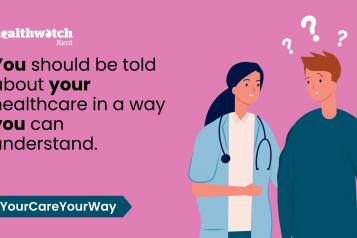Are you 'in the know' about deafblindess?

It affects everyone differently, some might need to adjust the settings on their TV or turn up the volume on the phone, and others might need assistance dogs, canes and more formal care.
What is deafblindness?
Deafblindness is the loss of sight AND hearing to the point where your communication, mobility and ability to access information are impacted. This includes 'progressive' sight and hearing loss where your sight and hearing may deteriorate over a period of time. Deafblindness is often also referred to as 'dual sensory loss' or 'dual sensory impairment'.
What causes deafblindness?
Deafblindness can be caused by certain health conditions, illnesses or from ageing.
Some causes of deafblindess are:
- age related hearing loss
- eye conditions such as age related macular degeneration, cataracts and glaucoma
- Usher syndrome – a genetic condition that affects hearing, vision and balance
- damage to the brain, such as from meningitis, encephalitis, a stroke or severe head injury
- problems associated with premature birth
- an infection picked up during pregnancy, such as rubella
- genetic conditions, such as CHARGE syndrome or Down's syndrome
- Cerebral palsy
Identifying deafblindness
Thousands of people in the UK are living with sight and hearing loss, but how can you tell whether you, or someone you know, is one of them?
Early signs of sight loss include:
- difficulty reading books and newspapers or watching TV
- difficulty recognising people, particularly in unexpected situations
- often thinking that you need new glasses
- being uncomfortable in bright and/or low lighting
- finding it hard to read facial expressions
- being unable to find something that you have lost without using your hands, or asking for help
- finding it difficult to move around in unfamiliar places or in familiar places that have changed
Early signs of hearing loss include:
- asking people to repeat themselves or to speak louder
- difficulty hearing the TV or radio or music and/or having the volume turned up high
- not hearing the doorbell or the telephone ringing
- complaining that people are mumbling or speaking too quickly
- finding it hard to understand unfamiliar people
- avoiding using the phone
If any of these sound familiar, help is available on the Deafblind UK website.
Talk to us
We can point you in the direction of more services that can help you.

